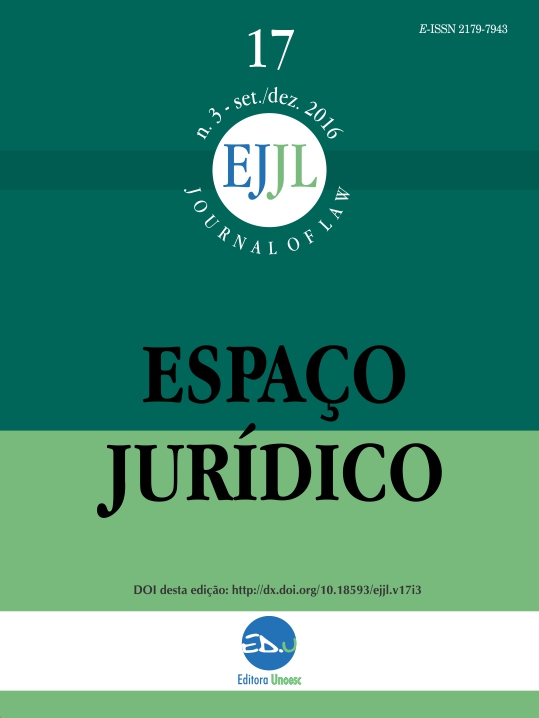The complex structure of the absolute prohibition of torture: comments in the light of the regulation of article 3 of the European Convention on human rights
DOI:
https://doi.org/10.18593/ejjl.v17i3.12769Resumo
Abstract: The complexity indicated in the title of this paper does not refer purely to the internal structure of the prohibition of torture, but also to the obligations of States party to the ECHR that are tied to this prohibition. This is because it is not restricted to negative obligations understood as a duty on the part of the State to abstain from certain interferences by the public authorities and which was the fundamental purpose of the ECHR and as such was entered explicit into the normative structure of the freedoms and rights defined in the ECHR , but embraces – firstly – positive obligations which result in a command to take measures for the purpose of ensuring freedom from the said torture for persons under the jurisdiction of States that are party to the ECHR, both in horizontal and vertical relations, and – secondly – a procedural obligations which, year by year, is achieving an ever more autonomous position among the types of commitment resulting from the ECHR for States and the essence of which is the effective clarification of circumstances in the violation of the prohibition of torture. Keywords: Human Rights. Torture. Ill-treatment. Positive and negative obligations.Downloads
Downloads
Publicado
Como Citar
Edição
Seção
Licença
DIREITOS AUTORAIS: Autores mantêm os direitos autorais e concedem ao periódico o direito de primeira publicação, com o trabalho simultaneamente licenciado sob a Licença Creative Commons Attribution que permite o compartilhamento do trabalho com reconhecimento da autoria e publicação inicial neste periódico.
CONTRATOS ADICIONAIS E DISTRIBUIÇÃO. Autores têm autorização para assumir contratos adicionais separadamente, para distribuição não exclusiva da versão do trabalho publicada neste periódico (ex.: publicar em repositório institucional ou como capítulo de livro), com reconhecimento de autoria e publicação inicial neste periódico.
DIREITOS DE REUTILIZAÇÃO: A Revista Espaço Jurídico adota a Licença Creative Commons, CC BY-NC (atribuição não comercial) conforme a Política de Acesso Aberto ao conhecimento adotado pelo Portal de Periódicos da Unoesc.
Com essa licença é permitido acessar, baixar (download), copiar, imprimir, compartilhar, reutilizar e distribuir os artigos, desde que para uso não comercial e com a citação da fonte, conferindo os devidos créditos de autoria e menção à Revista Espaço Jurídico. Assim, nenhuma permissão prévia será necessária por parte de autores ou editores da EJJL.



































